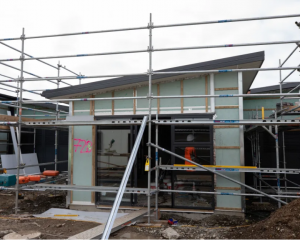All New Zealand television networks are toning down their shouting commercials in response to viewer complaints.
Most networks have agreed to introduce the quieter ads from January 1, but TVNZ is getting in first and will adopt the new standards from Sunday.
Television bosses have finally heeded decades of complaints and changed the rules on sound compression - a technique that makes many TV advertisements sound louder than the programmes.
Testing has found that because of the compression, advertisements have a smaller sound range between soft and loud than the programmes around them, and so they are harder on the human ear.
TVNZ, TV3 owner MediaWorks and Maori TV have signed up to the sound compression agreement and Sky TV, which also owns Prime, said it would also comply, although it had not signed the document.
TVNZ chief executive Kevin Kenrick said research on TV viewing habits showed loud advertisements were the thing people most disliked about watching TV.
That was bad for viewers and advertisers.
In terms of decibels, the adverts are not louder than the programmes, but compression makes them sound that way and stand out for viewers.
Networks have played down the effect, and even now the free-to-air broadcasters' body Think TV maintains viewers are not concerned.
But a 2008 Auckland University study commissioned by the Herald found viewers thought advertisements sounded 50 per cent louder than programmes.
The problem was worst when viewers were blasted by a compressed ad immediately after subtle dramatic programme scenes.
Mr Kenrick said technology had improved, and as a result of Sunday's change the transition between adverts and programming would be smoother.
TVNZ spokeswoman Megan Richards said: "Our only concern is that the impact might not be as big as some viewers expect."
Association of New Zealand Advertisers chief executive Lindsay Mouat said the change was not a problem for the advertising industry.
"The vast number of advertisers will not be concerned about the change," he said.
"It will reduce complaints about advertising, and that will be good for everybody. If people had to shout, you have to question if the ads were not very good."
Advertising agency veteran David Walden said the problem with shouting ads had worsened as the number of commercials brought in from Australia had increased.
People shouting in lower-cost adverts had a negative effect on more sophisticated advertising made by agencies.
Many ad agencies had sought restrictions over several years, he said.
But Think TV chief executive Rick Friesen said there had been few complaints.
The issue came up in the last election, when Labour made correction of the problem one of its broadcasting policies.
Broadcasting Minister Jonathan Coleman said the industry was in the process of dealing with the issue and Labour's policy was not relevant.
TV3 owner MediaWorks was yesterday caught unaware by TVNZ's decision to bring forward the restriction on loud advertisements.
- John Drinnan












